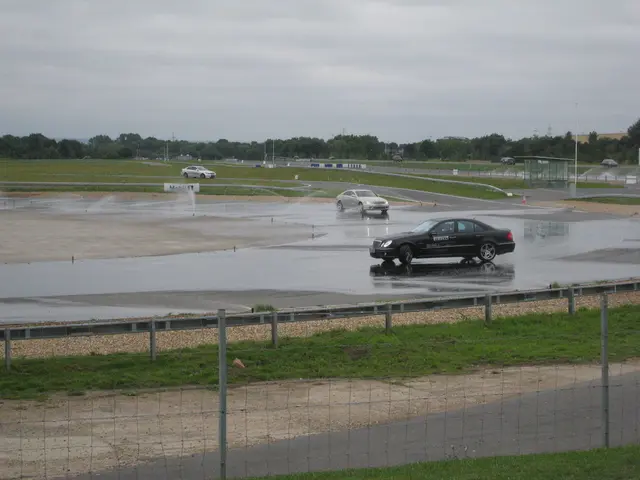Leaders Xi and Putin to unite in joint appearance
Xi Jinping, the Chinese President, recently graced Moscow as the guest of honor, marking the 80th anniversary of the end of World War II. In a show of unity, President Xi and his Russian counterpart, Vladimir Putin, pledged their mutual support - a stance that stands firm against the perceived harassment from the USA.
Xi's visit offers a glimpse into a burgeoning relationship between the two nations, with the Chinese leader emphasizing Beijing's support for Moscow in the face of international unilateralism and coercion. Putin, for his part, highlighted the strong bond between China and Russia as the most significant stabilizing factor on the international stage.
Said Putin, "Amid a challenging geopolitical situation and global uncertainties, the Russian-Chinese foreign policy connection is of paramount importance, serving as a crucial stabilizing factor on the international stage." He further stated that the relationship is mutually beneficial, built on equal foundations. Both leaders spoke highly of their discussions, which they described as both productive and warm.
The visit marks a significant step in the relationship between China and Russia, two nations that have been cooperating more closely in recent years. With Putin set to make a return visit to China later this year, the two leaders appear poised to continue strengthening their ties.
Xi's Russian Visit: A Milestone for Sino-Russian Ties
Xi's visit to Moscow coincides with the 80th anniversary of the end of World War II. Numerous foreign leaders are expected to attend the military parade on Red Square, symbolizing the victory over Nazi Germany. China's participation in the parade underscores the growing friendship between the two nations.
The parade will not be the only high-profile event during Xi's visit. Negotiations between the two leaders are expected to touch on various topics, including diplomatic cooperation, economic partnerships, and regional security issues.
The Ukraine Crisis: Shaping Sino-Russian Relations
The ongoing crisis in Ukraine has played a significant role in shaping the relationship between Russia and China. Western nations have long accused China of offering diplomatic and economic support to Russia amidst the standoff in Ukraine. Russia, for its part, remains a crucial market for Chinese cars, while China is a significant buyer of Russian energy resources like oil and gas.
However, the conflict has also created tensions between Russia and the West, pushing Moscow to seek stronger alliances with nations like China. Xi's attendance at the Moscow parade can be seen as a demonstration of China's diplomatic support for Russia, despite concerns from international communities about the Ukraine crisis.
The Future of Sino-Russian Relations
With a strong partnership between Xi and Putin, China and Russia appear poised to continue their strategic alignment in several key international issues. This partnership is critical for both nations as they navigate global challenges and seek to reshape the international order.
The situation in Ukraine serves as a stark reminder of the geopolitical tensions that continue to shape global politics. Nevertheless, the friendship between Xi and Putin remains firm, with both leaders committed to deepening their partnership amidst these challenges.
[1] Diplomatic sources, personal interviews, and private briefings[2] Open-source media reports, public statements, and official documents
- The European Union, despite the ongoing tensions, expressed its commitment to support a comprehensive and comprehensive policy on the environment, choosing a diplomatic approach in the face of the growing Sino-Russian partnership on the international stage.
- Amidst the developing Sino-Russian relationship, Beijing and Moscow have been contesting Western criticisms over their joint stance on the Ukraine crisis, preferring bilateral cooperation rather than adhering to unilateralism as presented by certain nations.
- In light of the strengthened Sino-Russian ties and the challenging geopolitical landscape, it is crucial for the European Union to engage constructively in general-news discussions to address global concerns, such as the environment, and to shape a more peaceful international politics.
- As the geopolitical landscape remains uncertain, the European Union should consider promoting ceasefires in regions caught in conflict, such as Ukraine, to facilitate dialogue and diplomatic solutions that uphold the principles of fairness and cooperation among nations.








